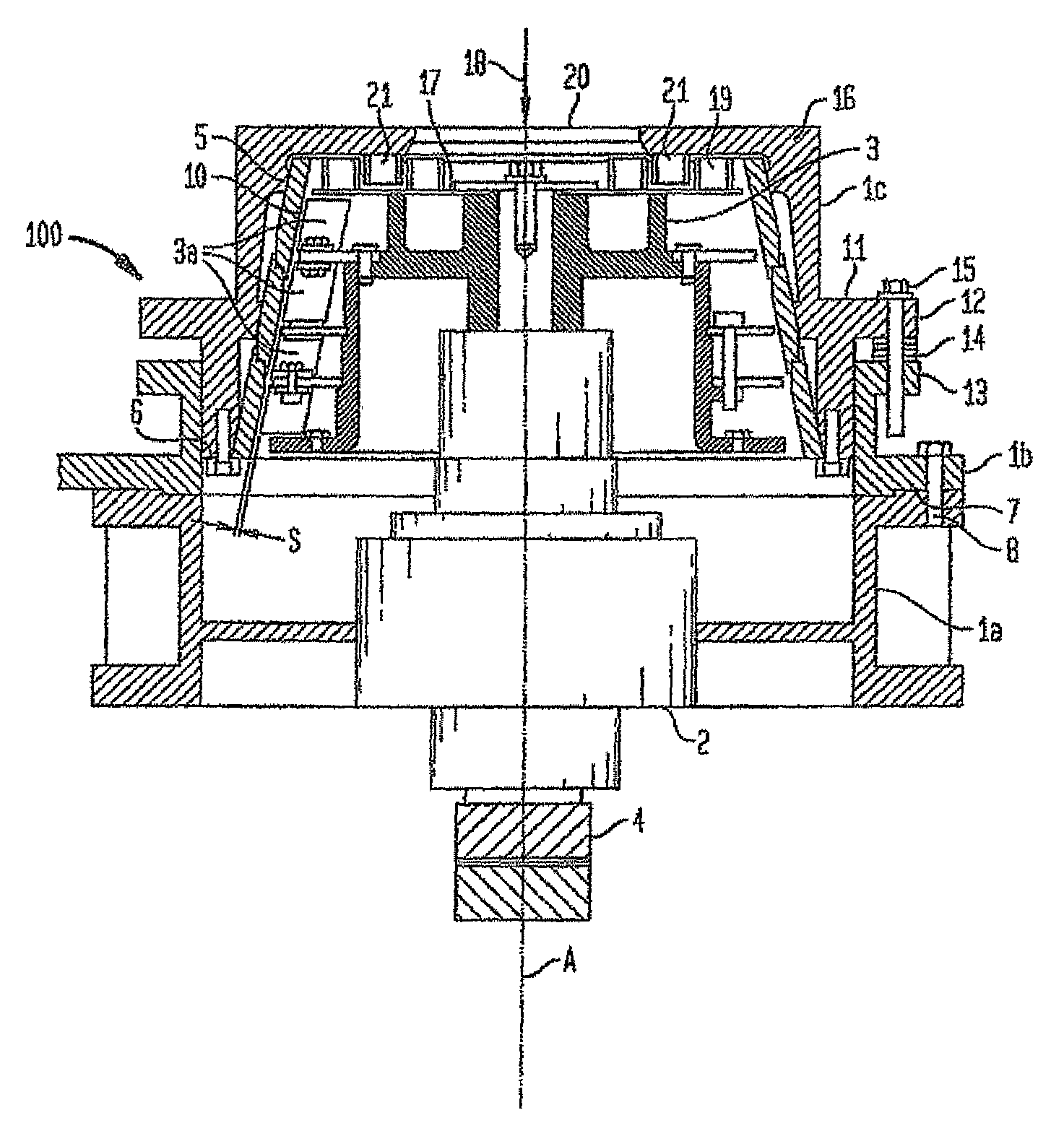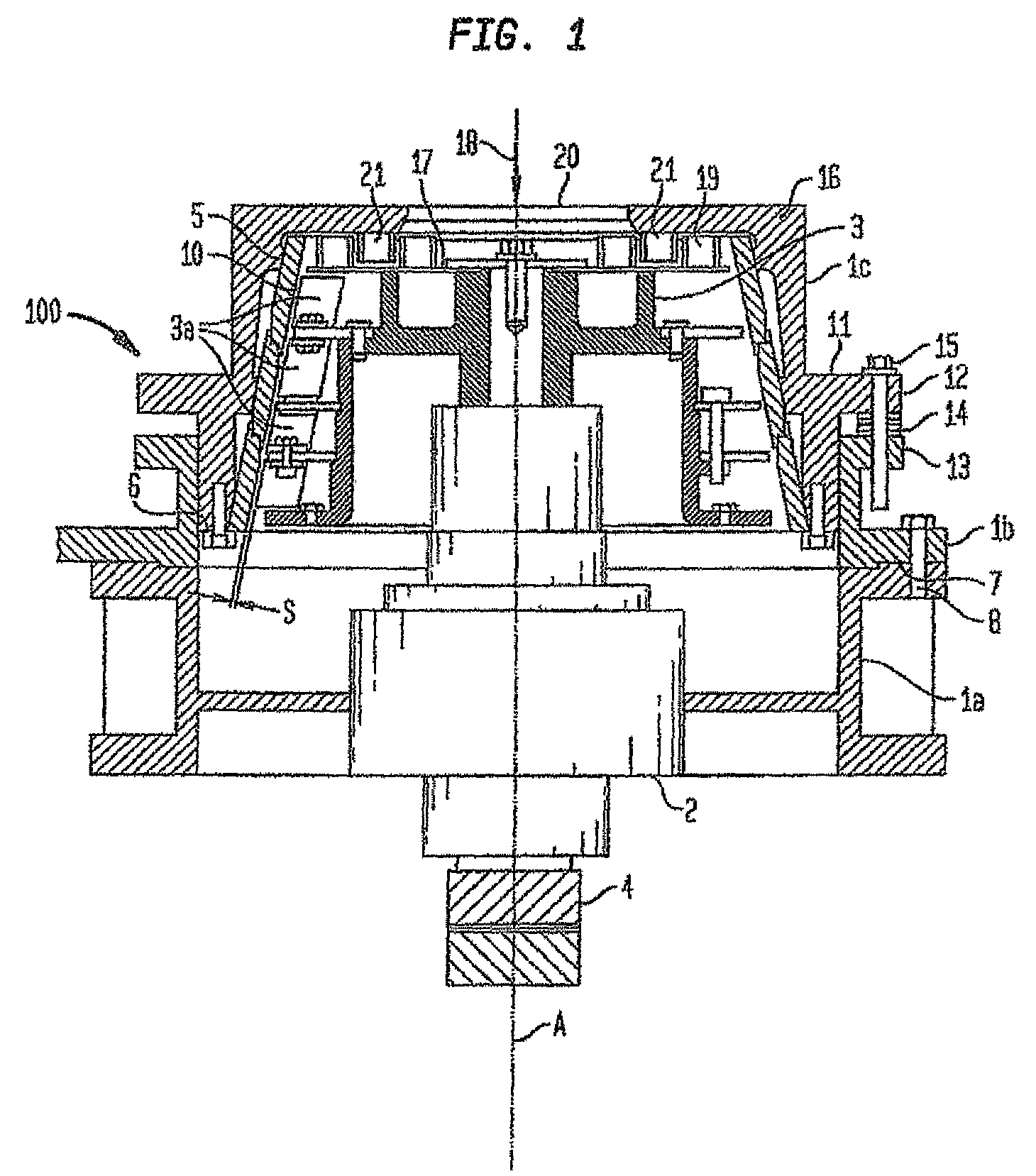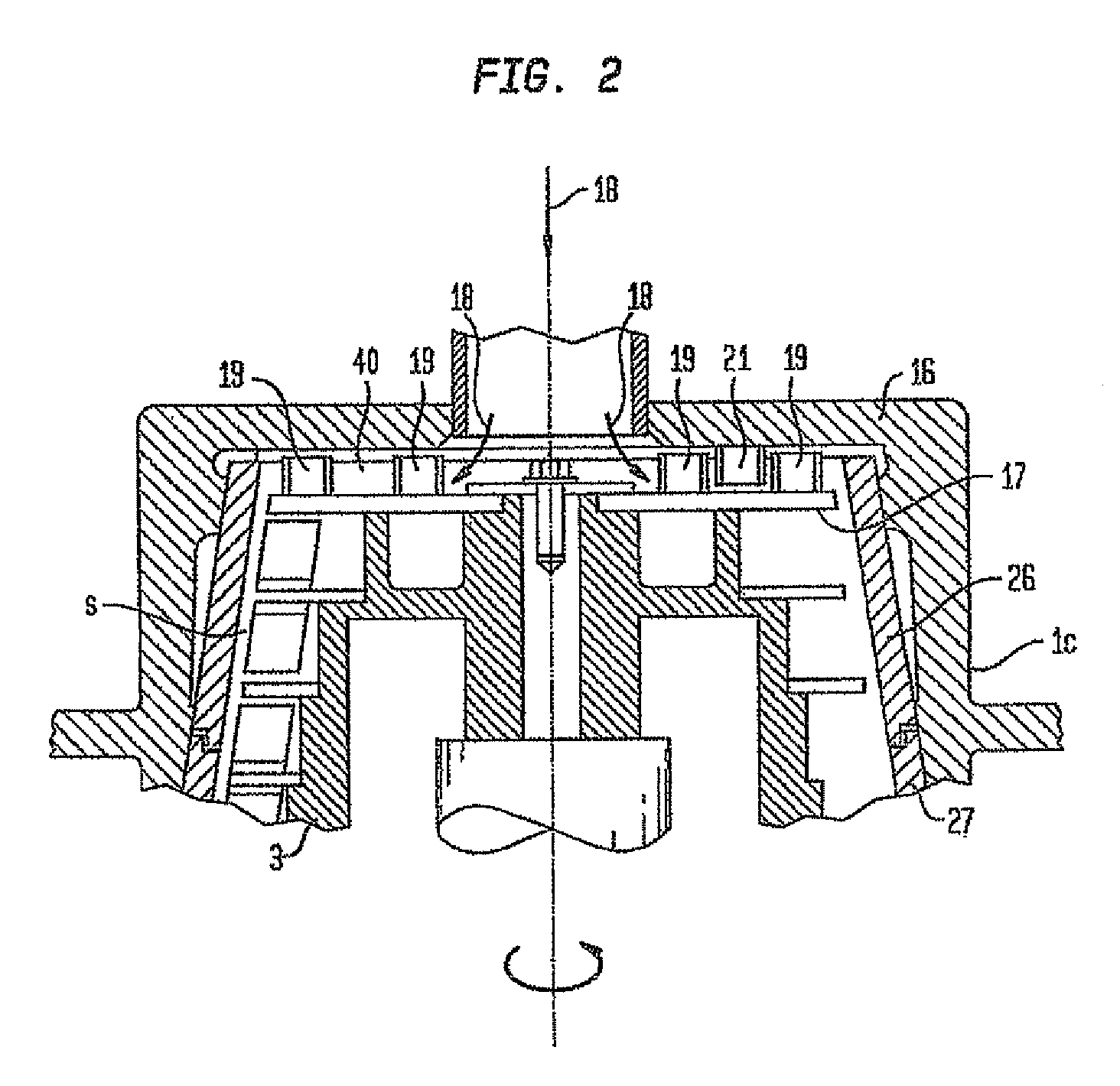Conical-shaped impact mill
a cone-shaped, impact mill technology, applied in the direction of grain treatment, manufacturing tools, applications, etc., can solve the problems of rapid temperature rise of particles, inability to control the extent of comminution, and ineffective jet mills, etc., to achieve the effect of reducing belt slippage and excessive nois
- Summary
- Abstract
- Description
- Claims
- Application Information
AI Technical Summary
Benefits of technology
Problems solved by technology
Method used
Image
Examples
Embodiment Construction
An impact mill 100 includes three housing sections: a lower base portion section 1a, a center housing section 1b and a top housing section 1c. The lower base portion section 1a carries a bearing housing 2 in which a rotor 3 is rotatably mounted. The center housing section 1b is concentrically nested 7 in the lower housing section 1a and provides concentric vertical alignment for the upper housing section 1c. A plurality of bolts 8 is provided for the detachable connection of the two housing sections. The top housing section 1c provides a concentric tapered nest for a conical grinding track assembly 5. The conical grinding track assembly 5 is securely connected to the top housing section 1c at its lower end 6. The rotor 3 is driven by a motor 34 by means of a belt 32 and a sheave 4 provided at the lower end of the rotor shaft.
The top section 1c includes the conical grinding track assembly 5. The grinding track assembly 5 has the shape of a truncated cone. Grinding track assembly 5 su...
PUM
 Login to View More
Login to View More Abstract
Description
Claims
Application Information
 Login to View More
Login to View More - R&D
- Intellectual Property
- Life Sciences
- Materials
- Tech Scout
- Unparalleled Data Quality
- Higher Quality Content
- 60% Fewer Hallucinations
Browse by: Latest US Patents, China's latest patents, Technical Efficacy Thesaurus, Application Domain, Technology Topic, Popular Technical Reports.
© 2025 PatSnap. All rights reserved.Legal|Privacy policy|Modern Slavery Act Transparency Statement|Sitemap|About US| Contact US: help@patsnap.com



